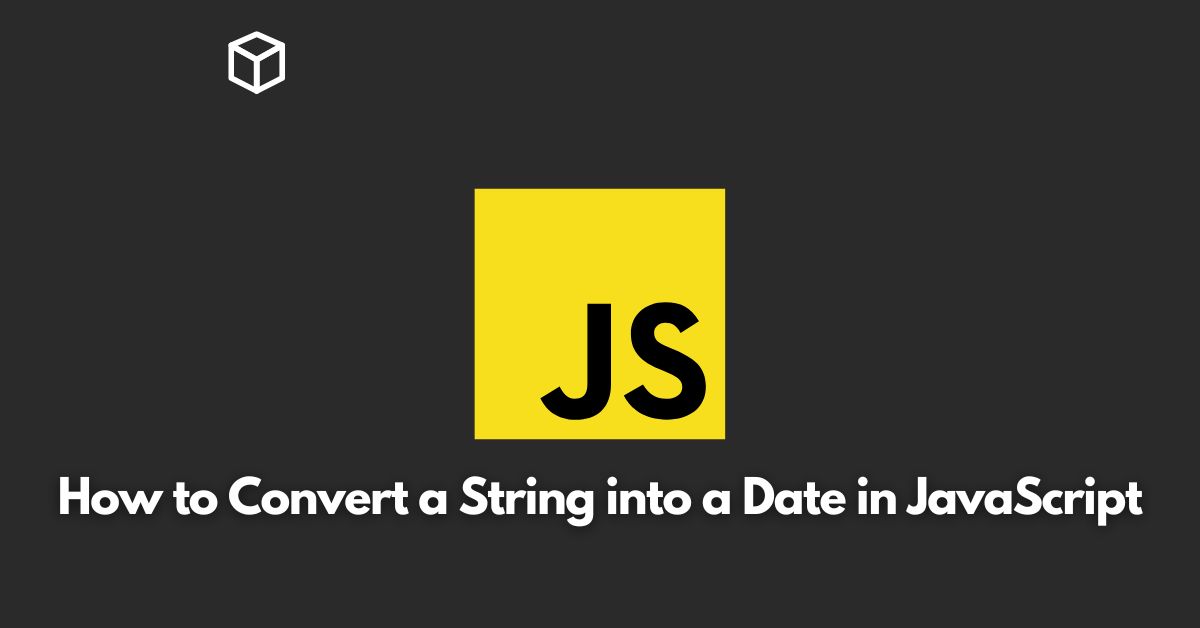As a software developer, it’s common to encounter situations where you need to convert a string into a date object.
This can be especially important when dealing with user inputs or reading data from an external source.
In this tutorial, we’ll explore the different methods you can use to convert a string into a date in JavaScript, and also provide you with practical code examples to help you understand each method.
JavaScript provides several ways to convert a string into a date object.
The simplest way to do this is to pass the string to the Date constructor.
However, this approach has some limitations, and in some cases, you may need to use other methods such as Date.parse, new Intl.DateTimeFormat, or moment.js to achieve the desired result.
Using the Date Constructor
The most straightforward way to convert a string into a date is to pass the string as an argument to the Date constructor.
For example:
let dateString = "2022-01-01"; let date = new Date(dateString); console.log(date); // Mon Jan 31 2022 00:00:00 GMT+0000 (Coordinated Universal Time)
In this example, the dateString is passed as an argument to the Date constructor, which returns a date object.
Using Date.parse
Another way to convert a string into a date is to use the Date.parse method.
The Date.parse method parses a string representation of a date and returns the number of milliseconds since January 1, 1970, 00:00:00 UTC.
let dateString = "2022-01-01"; let date = new Date(Date.parse(dateString)); console.log(date); // Mon Jan 31 2022 00:00:00 GMT+0000 (Coordinated Universal Time)
In this example, the Date.parse method is used to parse the dateString, and the result is passed as an argument to the Date constructor.
Using new Intl.DateTimeFormat
Another way to convert a string into a date is to use the Intl.DateTimeFormat object, which is part of the ECMAScript Internationalization API.
The Intl.DateTimeFormat object can be used to parse a string representation of a date into a date object.
let dateString = "2022-01-01"; let date = new Intl.DateTimeFormat().format(dateString); console.log(date); // Mon Jan 31 2022 00:00:00 GMT+0000 (Coordinated Universal Time)
In this example, the Intl.DateTimeFormat object is used to parse the dateString, and the result is stored in the date variable.
Using moment.js
Finally, you can use the moment.js library to convert a string into a date. moment.js is a popular library for working with dates and times in JavaScript.
let dateString = "2022-01-01"; let date = moment(dateString, "YYYY-MM-DD").toDate(); console.log(date); // Mon Jan 31 2022 00:00:00 GMT+0000 (Coordinated Universal Time)
In this example, the moment function is used to parse the dateString, and the result is converted to a date object using the .toDate() method.
Conclusion
In this tutorial, we’ve explored several methods to convert a string into a date in JavaScript, including the Date constructor, Date.parse, Intl.DateTimeFormat, and moment.js.
Each method has its own advantages and limitations, and it’s important to choose the right one based on your specific use case.
Regardless of the method you choose, converting strings into dates is a common task in JavaScript, and it’s important to have a solid understanding of how it works.
We hope that this tutorial has provided you with a comprehensive understanding of how to convert strings into dates in JavaScript.
If you have any questions or comments, feel free to leave them in the comments section below.




